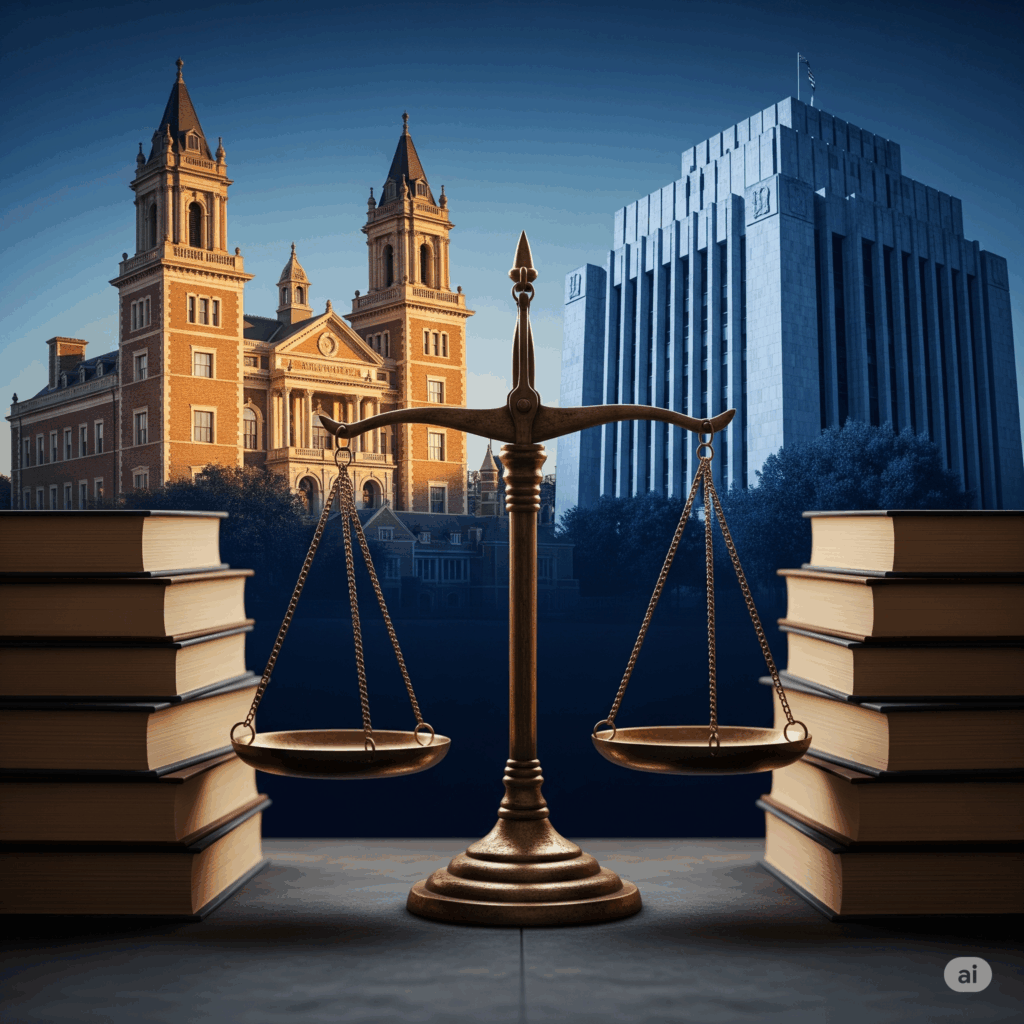On Thursday, the Trump administration announced that Harvard University’s ability to enroll international students had been revoked. This meant that international students currently enrolled might have to leave, and new international students could not come to Harvard. The U.S. Department of Homeland Security stated that this action was taken to hold Harvard “accountable for fostering violence, antisemitism, and coordinating with the Chinese Communist Party on its campus.” Kristi Noem, the homeland security secretary, also stated that it is a “privilege, not a right, for universities to enroll foreign students.”
Harvard quickly responded, calling the administration’s action “unlawful” and stating it “threatens serious harm to the Harvard community and our country, and undermines Harvard’s academic and research mission.” Harvard enrolls nearly 7,000 international students, making up about 27% of its total student body. These students, who come from over 140 countries, “enrich the University and this nation immeasurably” by bringing cultural perspectives and research contributions. International students do not qualify for federal financial aid and often pay higher tuition, which contributes significantly to the university’s revenue. Last academic year, international students contributed over $43 billion to the U.S. economy.
The news caused fear and confusion among many students. A Canadian undergraduate student expressed being “quite nervous” and feeling like an “outsider”. A third-year student from Europe was “fearful and uneasy” about his education and future work opportunities. Students discussed the possibility of having to leave Harvard or even transferring to universities in other countries like Oxford or Cambridge.

However, Harvard quickly took legal action. Less than 24 hours after the administration’s announcement, Harvard University sued the Trump administration. The lawsuit accused the administration of a “campaign of retribution” and “clear retaliation for Harvard exercising its First Amendment rights.” Harvard’s president, Dr. Alan M. Garber, stated that the action was “unlawful and unwarranted” and “imperils the futures of thousands of students and scholars.”
The good news for the students came swiftly on Friday morning. A federal judge in Boston, Allison D. Burroughs, issued a temporary restraining order against the federal government’s order. The judge agreed with Harvard that implementing the order would cause “immediate and irreparable injury” to the university. This decision means that, for now, international students at Harvard can continue their studies and remain in the United States.
This situation is part of an ongoing conflict between the Trump administration and Harvard, with the administration citing efforts to combat antisemitism and address liberal biases on campus. However, the judge’s swift decision has brought a temporary sense of relief to the international student community at Harvard.
This article is based on the following articles:
https://www.npr.org/2025/05/22/nx-s1-5407878/trump-harvard-international-students

Background Information
- What is an “administration” in government? When you hear “Trump administration,” it refers to the group of people working for the President and helping him run the country. They make decisions and set rules for different parts of the government.
- What is the Department of Homeland Security (DHS)? This is a government department in the U.S. that works to keep the country safe. One of their jobs is to oversee immigration and people coming into the country, including students. The Secretary of Homeland Security is the leader of this department.
- What are “international students”? These are students who come from other countries to study in the United States. They need special permission, called a visa, to be able to study here.
- What is a “federal judge”? A federal judge is a person who works in a special court in the U.S. government. Their job is to decide if laws are being followed correctly and to settle disagreements, like when Harvard sued the government.
- What is a “temporary restraining order”? This is a quick decision made by a judge that stops something from happening for a short time. It’s usually given when someone shows that they could be hurt if the action isn’t stopped right away.
- What does “revoked” mean? If something is “revoked,” it means it’s officially taken back or canceled. So, when Harvard’s ability to enroll international students was “revoked,” it meant they lost that permission.
- What is a “lawsuit”? A lawsuit is when one person or group officially complains in court about another person or group, asking the court to make a decision to fix a problem. Harvard filed a lawsuit against the Trump administration.
- What are “First Amendment rights”? The First Amendment is a part of the U.S. Constitution that protects certain freedoms, like freedom of speech and the right to express your ideas. Harvard argued that the government was interfering with its First Amendment rights.
- What is “antisemitism”? This is hostility to or prejudice against Jewish people. The Trump administration mentioned combating antisemitism as a reason for its actions against Harvard.
- What is the “Chinese Communist Party”? This is the ruling political party in China. The administration accused Harvard of “coordinating” with them.
- What is an “endowment”? A university’s endowment is a large amount of money that has been given to the school and is invested. The money earned from these investments helps pay for things at the university, like buildings, scholarships, and professors’ salaries. The administration mentioned Harvard’s “multibillion-dollar endowments”.
- What is “tax-exempt status”? This means that an organization, like a university, doesn’t have to pay certain taxes. The administration had previously threatened Harvard’s tax-exempt status.
Please subscribe to Insight Fortnight, our biweekly newsletter!
